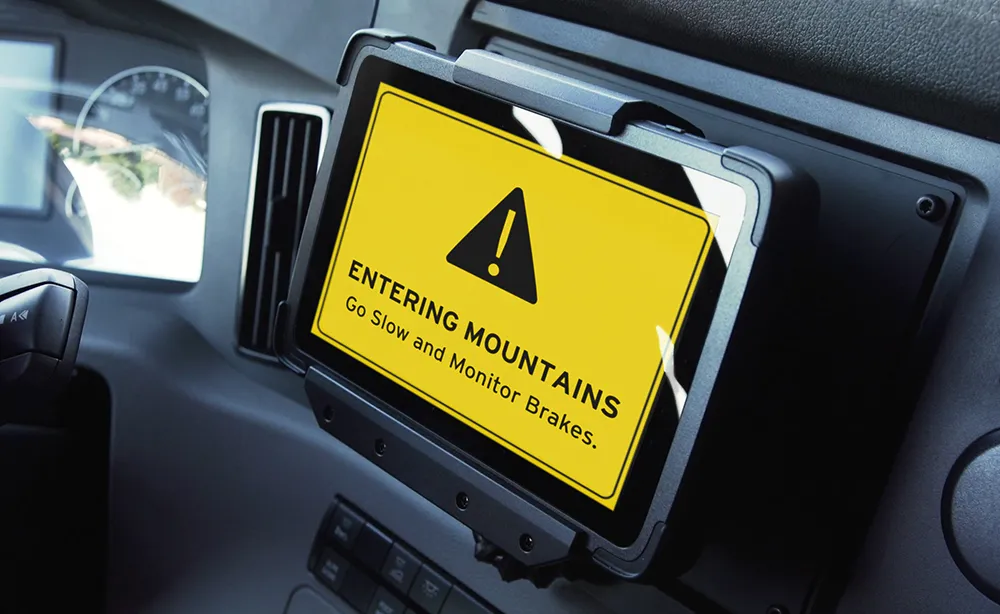Drivewyze is extending its safety notification service by adding mountain corridor safety alerts to more than 100 locations in 20 US states.
January 23, 2020
Read time: 1 min

The technology company says drivers receive in-cab alerts on safe locations to pull over to inspect brakes and prompts to change to a lower gear while showing suggested maximum speeds down steep grades. Product manager Charlie Mohn says: “All of the mountain passes included feature grades of 5% or higher. With our mountain safety alerts, our goal is to help drivers focus on the terrain ahead while providing information that will make them safer on the road.”
The alerts are available in Arizona, California, Colorado, Idaho, Maryland, Massachusetts, Montana, New Mexico, Nevada, New York, North Carolina, Oregon, Pennsylvania, Tennessee, Vermont, Virginia, Utah, Washington, West Virginia and Wyoming.










